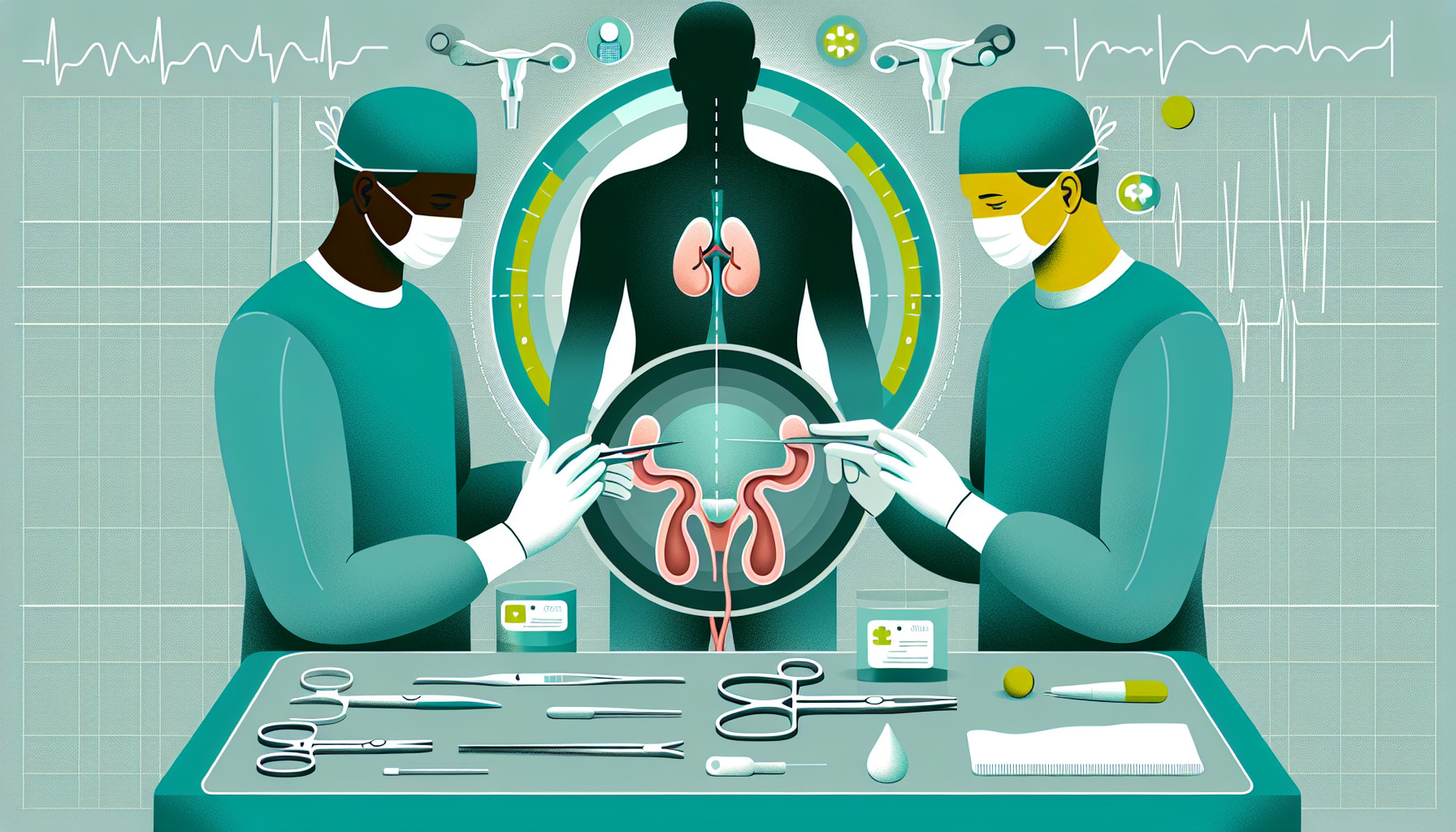Our Summary
This research paper reviews recent studies on the effectiveness of using robots in surgery to remove aggressive bladder cancer, compared to traditional open surgery. The latest findings suggest that robot-assisted surgery is just as effective as open surgery, and patients may have a slightly shorter hospital stay. However, more evidence is needed to prove that robot-assisted surgery offers significant improvements over open surgery. Until then, open surgery remains the go-to method for treating this type of bladder cancer.
FAQs
- What does recent research suggest about the effectiveness of robot-assisted surgery for aggressive bladder cancer?
- How does the hospital stay duration compare between robot-assisted surgery and traditional open surgery?
- Is robot-assisted surgery currently the preferred method for treating aggressive bladder cancer?
Doctor’s Tip
One helpful tip a doctor might tell a patient about cystectomy is to follow post-operative care instructions carefully to ensure proper healing and minimize the risk of complications. This may include following a specific diet, avoiding certain activities, and attending follow-up appointments as recommended. It is important to communicate any concerns or changes in symptoms to your healthcare provider promptly.
Suitable For
Patients who are typically recommended cystectomy, either through open surgery or robot-assisted surgery, include those with aggressive bladder cancer that has not responded to other forms of treatment. Additionally, patients with muscle-invasive bladder cancer or those with non-muscle invasive bladder cancer that has a high likelihood of progressing to muscle-invasive disease may also be recommended for cystectomy. Other factors that may influence the recommendation for cystectomy include the size and location of the tumor, the patient’s overall health and medical history, and their preferences for treatment options. Ultimately, the decision to undergo cystectomy is made on a case-by-case basis by a multidisciplinary team of healthcare providers.
Timeline
- Before cystectomy:
- Patient is diagnosed with aggressive bladder cancer and discusses treatment options with their healthcare team.
- Patient undergoes pre-operative tests and evaluations to determine if they are a suitable candidate for surgery.
- Patient may undergo chemotherapy or radiation therapy to shrink the tumor before surgery.
- Patient receives counseling and education on the procedure and potential side effects.
- After cystectomy:
- Patient undergoes the cystectomy procedure, either through open surgery or robot-assisted surgery.
- Patient stays in the hospital for a period of time to recover and receive post-operative care.
- Patient may experience pain, discomfort, and potential complications such as infection or blood clots.
- Patient undergoes rehabilitation and physical therapy to regain strength and function.
- Patient may need to adjust to life with a urostomy bag or other methods of urinary diversion.
- Patient undergoes regular follow-up appointments and screenings to monitor for any signs of cancer recurrence.
- Patient continues to receive support and care from their healthcare team to manage any long-term side effects or complications.
What to Ask Your Doctor
What are the potential risks and complications associated with a cystectomy procedure?
What is the expected recovery time after a cystectomy surgery?
Will I need any additional treatments or follow-up care after the cystectomy?
What are the long-term outcomes and survival rates for patients who undergo a cystectomy?
Are there any alternative treatment options to consider before undergoing a cystectomy?
How experienced is the surgical team in performing cystectomy procedures, and what is their success rate?
What type of anesthesia will be used during the surgery, and what can I expect in terms of pain management post-surgery?
How will the removal of the bladder affect my daily life, including activities such as diet, exercise, and sexual function?
Are there any support groups or resources available for patients undergoing a cystectomy procedure?
What steps can I take to help prepare for the surgery and optimize my recovery outcomes?
Reference
Authors: Khetrapal P, Conroy S, Kelly JD, Catto JWF. Journal: Curr Opin Urol. 2020 May;30(3):400-406. doi: 10.1097/MOU.0000000000000755. PMID: 32235281
